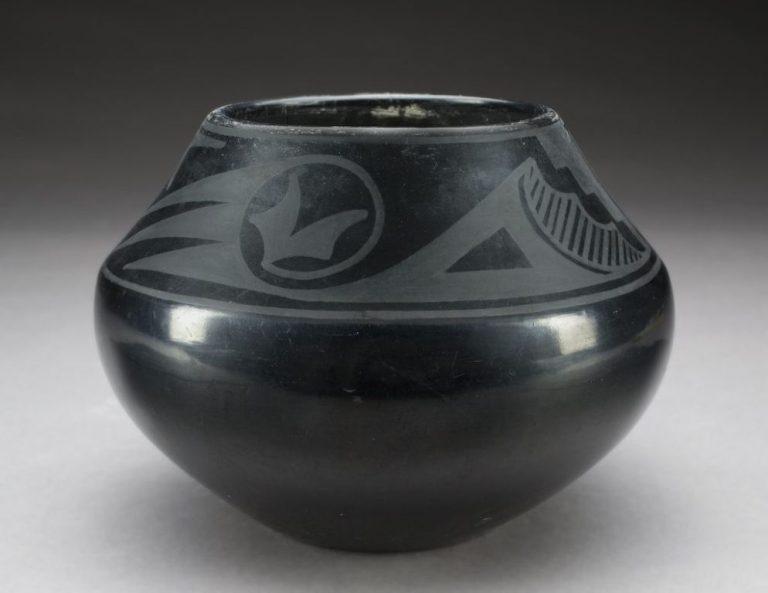Is Adopt A Bee Legit?
“Adopt a bee” programs allow individuals to symbolically adopt a bee for a small fee, usually around $5-10. The money goes towards supporting honey bee conservation efforts, research, and education. Though you aren’t literally adopting an individual bee, the donation helps sustain bee populations. With major threats like colony collapse disorder, habitat loss, and pesticides impacting bee communities, adopt a bee programs aim to raise awareness and funding.
While some legitimate conservation organizations offer adopt a bee programs, there are also scams that cash in on this concept. It’s important to research an organization before participating to ensure your money actually benefits bee conservation.
This introduction provides a definition of adopt a bee programs, noting their purpose in supporting bee conservation and research. It acknowledges the issue of scams before previewing the need to identify legitimate programs.
History
Adopt a bee programs started becoming popular in the early 2010s as a way to support local beekeepers and raise awareness about the importance of honeybees and other pollinators. According to the Adopt A Beehive – Save A Beekeeper? article on NPR (https://www.npr.org/sections/thesalt/2016/03/29/472183613/adopt-a-beehive-save-a-beekeeper), one of the first adopt a bee programs was introduced in 2012 at Frangiosa Farm in Leesburg, Virginia. For a one-time fee, people could adopt a beehive and receive updates about “their” bees. Other early adopters of the adopt a bee model include the Cincinnati Art Museum in Ohio (https://www.cincinnatiartmuseum.org/give-join/ways-to-give/adopt-a-bee/) and the University of Hawaii Hilo (https://hilo.hawaii.edu/blog/chancellor/2011/06/27/adopt-behive-research-uh-hilo/), which launched programs in 2012 and 2011 respectively. The concept spread rapidly, and soon adopt a bee programs could be found across the United States and globally.
How Adopt a Bee Programs Work
Adopt a bee programs allow people to sponsor honey bee hives managed by beekeepers. Interested individuals pay an adoption fee, typically ranging from $50 to $100, to adopt a hive. In exchange, adopters receive benefits like honey jars, beekeeping lessons, and adoption certificates.
The adoption fees go towards supporting the beekeeper’s overall operations. Beekeepers use the funds to maintain hives, prevent diseases, replace old equipment, and restock colonies that don’t survive the winter. Adoption programs provide a supplemental income source for beekeepers facing declining honey prices and rising costs.
Once someone adopts a hive, the sponsor receives updates on the health and productivity of their bees. Many programs send adopters photos, videos, and hive inspection reports. Adopters may get honey harvested from their sponsored hive. Some organizations also offer opportunities to tour the apiary and see colonies up close.
While adopters do not own or manage their bee colonies, these programs allow them to directly support beekeepers. This assists in pollinator conservation efforts and spreading awareness about the importance of honey bees. According to Bear Country Bees, over 2.5 million honey bees have been sponsored through adoption programs so far.
Benefits of Adopt a Bee Programs
Adopt a bee programs provide numerous benefits for bees, beekeepers, local communities, and the environment. By adopting a bee, hive, or colony, individuals or organizations provide crucial funding and support for beekeepers and conservation efforts. According to the Beehive Adoption Benefits article on Harborough Honey Co’s website, “Adopting a beehive…helps beekeepers with apiary costs like extra equipment, medicines and transport for the bees.”
Bee populations have been declining in recent years due to habitat loss, pesticides, parasites, and diseases. Adopt a bee programs help counteract these threats by providing beekeepers with the resources they need to maintain healthy hives. The revenue from adoptions enables them to cover expenses, expand operations, and implement conservation initiatives. As the Adopt a Bee article on Karma Honey Project’s website states, “Adopting a bee with us means you’ll be helping a blossoming bee species to thrive, and supporting a local beekeeper.”
By funding beekeepers, adopt a bee programs also support pollination, biodiversity, and sustainable agriculture. Bees play a vital ecological role by pollinating wildflowers, fruits, vegetables, and other crops. Their services are estimated to be worth billions of dollars for agriculture. Adopt a bee campaigns help ensure healthy bee populations that can continue providing these invaluable pollination services.

Overall, adopt a bee programs provide a meaningful way for individuals and organizations to make a positive impact on bee conservation. The funds raised create stability for beekeepers while fostering environmental benefits on a broader scale.
Criticisms
Some adopt-a-bee programs have been criticized as scams or misleading marketing ploys. While many legitimate conservation organizations use bee adoption programs as fundraising tools, some companies have been accused of misrepresenting the impact of these adoptions.
For example, according to a Reddit discussion, Project Honey Bees has faced scrutiny for focusing mainly on promoting honey production rather than broader ecological conservation efforts (source). Some critics argue these programs give the impression that buying a symbolic adoption has a direct impact on saving bees, when the adoptions may function more like donations without a clear benefit to bee populations.
Potential adopters should research organizations carefully to understand exactly how their contributions will be used. Legitimate programs will provide transparency about how funds are allocated. Scam programs may vaguely claim the adoption helps bees but provide little detail on how the funds translate to conservation action.
Legitimate Programs
There are several reputable organizations running adopt a bee programs that allow people to sponsor hives and support bee conservation efforts. Some examples of legitimate programs include:
Project Honey Bees – This non-profit organization allows individuals to adopt a hive for $30. Adopters receive photos, videos, and updates on their sponsored hive. Project Honey Bees donates a portion of profits to organizations like the Honey Bee Conservancy.
Bee Mindful – This program allows you to adopt a hive for $40 per year. Adopters can visit their sponsored hive and learn about beekeeping from farmers. The adoption helps cover costs of bee care and research.
The Honey Bee Conservancy – This non-profit has an Adopt-A-Hive program that funds research, education, and advocacy projects to protect bees. Adoptions start at $30 per year.
Other programs like The Bee Cause Project, Pollinate Farm, and The Beekeepers of Sweet Virginia also offer legitimate ways to adopt hives and help conserve honey bees.
Scam Warning Signs
When considering an adopt a bee program, it’s important to look out for signs that it may be a scam. According to a Reddit discussion on r/vegan, some key things to watch out for include:
No transparency about where the money goes – Legitimate organizations should clearly state how adoption fees are used. As one Redditor said, “I’d be worried the money just goes into someone’s pocket.”
Vague or exaggerated claims – Beware of programs that make broad claims about “saving the bees” but provide little detail on their actual conservation efforts. As the Reddit thread pointed out, adopting one bee doesn’t really help populations.
High-pressure sales tactics – Scam programs may try to get you to sign up quickly with limited time offers or other tactics. Take time to research any program before committing.
No contact information – Reputable organizations should provide valid physical addresses, phone numbers, and ways to get in touch. Lack of contact info is a red flag.
No beekeeper affiliation – Many scams have no actual beekeepers or apiaries involved. Look for programs partnered with real beekeepers committed to conservation.
By carefully vetting any bee adoption program using these criteria before signing up or sending money, you can avoid scams and make sure your donation genuinely supports bees.
Alternatives
While programs like “adopt a bee” aim to support bee conservation, there are other ways individuals can help save bees without having to pay adoption fees. According to Project Honey Bees, the top alternatives for helping bee conservation include:
- Planting bee-friendly flowers and plants in your garden or yard
- Avoiding the use of pesticides which can be toxic to bees
- Providing clean water sources with things like bird baths or fountains
- Putting up bee houses to give them nesting areas
- Supporting local beekeepers by buying honey and other products
These steps help create an environment where bees can thrive without having to formally “adopt” a colony. Simple gardening choices like choosing pollinator-friendly plants and avoiding pesticide use can make a big difference. Supporting local apiaries also helps beekeepers continue their important conservation work.
The Future
Adopt a bee programs have grown in popularity over the past decade. As environmental awareness increases and concern over bee populations declines grows, these programs are likely to continue expanding.
There are several reasons why adopt a bee is likely to maintain or increase in popularity:
- Environmental causes resonate strongly with younger generations who want to make a difference.
- Adopt a bee offers a hands-off, symbolic way for people to get involved and feel they are supporting pollinators.
- Beekeepers and conservation organizations have found it an effective fundraising model.
- Gifting adoptions has become trendy for birthdays, holidays, retirements, etc.
- The model is easily adaptable to schools, museums, zoos and other institutions.
As long as concerns about bee populations and colony collapse disorder persist, adopt a bee programs are likely to thrive. They offer an accessible way for ordinary citizens to feel engaged with environmental causes. However, their long-term impact may depend on whether adopters become inspired to take further action to help bees.
Conclusion
In summary, while adopt a bee programs like Project Honey Bees aim to promote bee conservation, their legitimacy is questionable. The lack of transparency around how donations are used and where the honey comes from raises doubts. Additionally, commercial beekeeping practices may actually harm wild bee populations. While supporting bee conservation is admirable, there are more effective ways to help bees than adopt a bee programs, like planting pollinator-friendly gardens or donating to nonprofit organizations doing research and advocacy. If you want to symbolically adopt a bee, be an informed consumer and understand the limitations of these programs. But the best way to aid bees is through actions that benefit bee welfare and species preservation overall.




